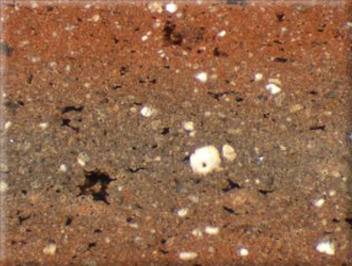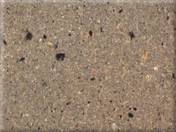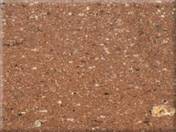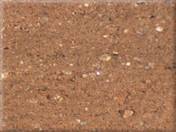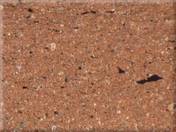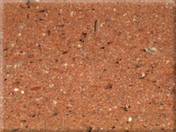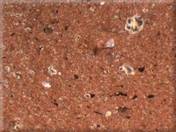| | fabric description | | object data | | archaeometry | | petrography | | |
| fabric type |
PAN-C-1
|
| ware |
Coarse Wares |
| supposed site of production |
Palermo / Panormos |
| visual excamination of fresh break |
light red, granular; some fine to mid-sized white inclusions, few mid-sized dark inclusions |
| colour of freshly broken section (munsell) |
2.5YR5/6 |
| texture of freshly broken surface |
granular |
| hardness |
hard |
| porosity |
5%; void form: vughy; channel; void length: 0.04-0.25 |
| inclusions |
5%, length: 0.02-0.6 |
| sorting |
unsorted |
| |
Inclusions
|
|
mica |
frequent, angular, spherical, white, 0.03 |
|
calciumcarbonate |
frequent, rounded, spherical, white, 0.06-0.6 |
|
carbonate pseudomorphoses |
very frequent, rounded, spherical, white, 0.03-0.3 |
|
black iron oxide concretions |
infrequent, rounded, spherical, black, 0.03-0.09 |
|
red iron oxide concretions |
infrequent, rounded, subelongate, reddish brown, 0.09-0.3 |
| | fabric description | | object data | | archaeometry | | petrography | | |
| vessel form type |
Jug
jug "brocca" |
| fragmentation |
body |
| surface description |
smoothed
exterior: light reddish brown, 5YR5/4; interior: light red, 2.5YR6/6 |
| |
Context Data
|
| site of discovery |
Palermo / Panormos
Caserma Tukory |
| registration code of context |
US 168 |
| | fabric description | | object data | | archaeometry | | petrography | | |
| sample taken |
September 2009, by Francesca Spatafora, Soprintendenza Beni Culturali e Ambientali di Palermo |
| sample no |
M 106/4 |
| status of sample |
whole sample available |
| | fabric description | | object data | | archaeometry | | petrography | | |
| sample number |
M 106/4 |
| inventory number |
Caserma Tukory, US 168 |
| analysis author |
Giuseppe Montana - Luciana Randazzo |
| email |
giuseppe.montana@unipa.it; luciana.randazzo@unical.it; |
| institution |
University of Palermo - Dipartimento di Scienze della Terra e del Mare (DiSTeM); University of Calabria Dipartimento di Biologia, Ecologia e Scienze della Terra (DiBEST):
|
| |
Inclusions Microstructure
|
| distribution |
moderately homogeneous |
| packing |
medium (10-20%) |
| size |
prevalent:
very fine (0.04-0.1mm), fine (0.1-0.2mm)
|
| roundness |
angular |
| sorting |
good |
| maximum grain size |
0.4 mm |
| |
Mineral Inclusions
|
| prevalent |
Monocrystalline Quartz |
| sporadic |
Polycrystalline Quartz, Orthoclase, Muscovite |
| rare |
Plagioclase |
| |
Rock Fragments
|
| sporadic |
Sedimentary (Sandstone) |
| |
Newly Formed Phases
|
| common |
secondary calcite |
| |
Other Compositional & Textural Features
|
| common |
Microfossils (Benthic Foraminifera), Micritic Clots |
| quartz grain prevailing roundness |
sub-angular |
| |
Coating / Slipping
|
| thickness |
|
| conservation status |
|
| |
Texture
|
| homogenity |
moderately homogeneous patchy: rare |
| optical activity |
inactive |
| color |
brownish |
| degree of sintering |
well sintered |
| |
Porosity
|
| abundance of voids/pores |
low (<10%) |
| orientation |
none |
| prevalent |
large (>1mm), cast |
| |
Composition
|
| clay composition |
ca-rich |
| |
Interpretation
|
| estimated firing temperature |
well fired |
| modelling of raw clay |
use of wheel |
| refinement of raw clay |
good |
| refinement of temper |
sieved natural sand |
Cite this page as: FACEM - http://facem.at/m-106-4
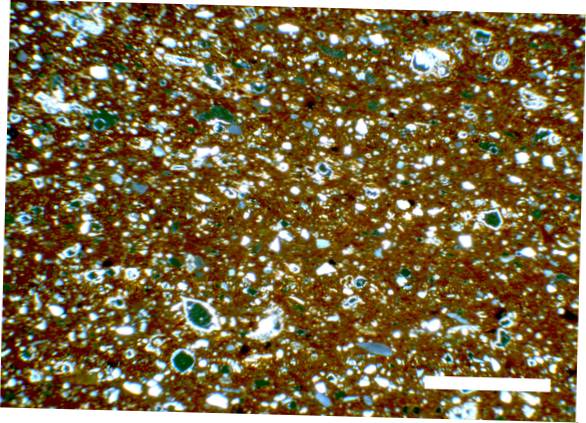

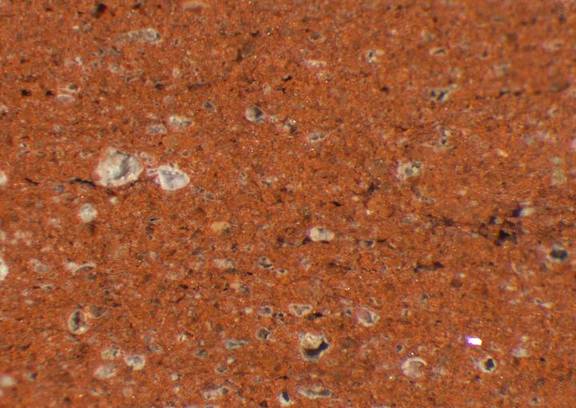

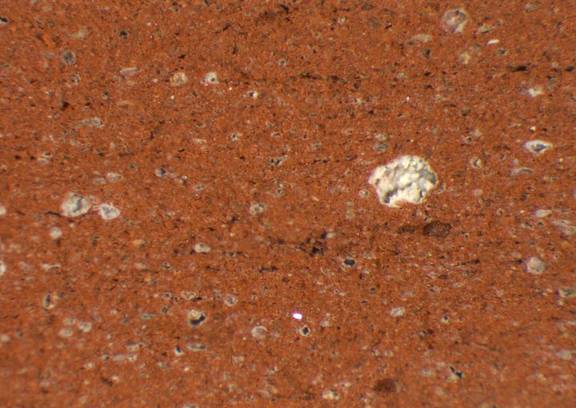

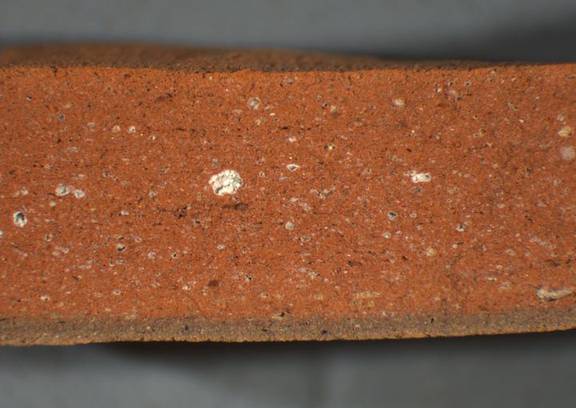


 production
production
 sampling
sampling
